By Cora Chan, originally published on the HKU Legal Scholarship Blog.
There is speculation that Beijing’s National People’s Congress Standing Committee (NPCSC) will issue an interpretation of the Basic Law to bar two Legco members-elect from taking office. This piece expounds the nature and impact of the NPCSC’s power of interpretation and argues that serious thought should be devoted to developing legal controls on Beijing’s powers of interpretation.
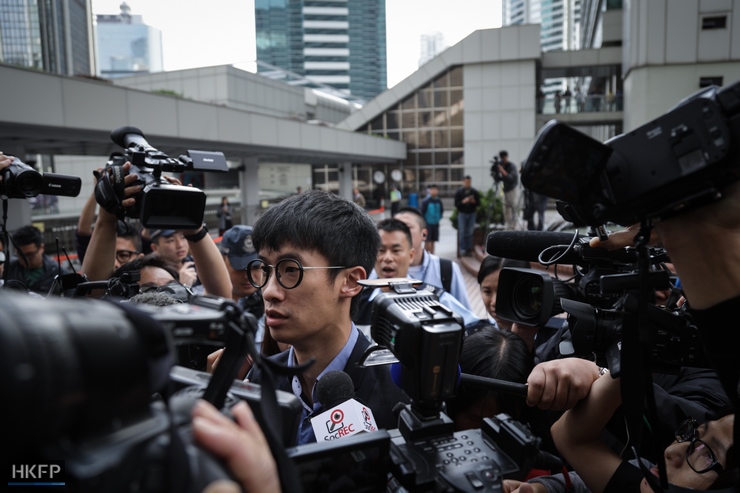
Article 158(1) of Hong Kong’s Basic Law provides that the power of interpreting that Law is vested with the NPCSC. Article 158(2) and (3) go on to say that the NPCSC authorises Hong Kong courts to interpret the Basic Law on their own in the course of adjudication, subject to a duty on the Court of Final Appeal (CFA) to seek an interpretation from the NPCSC, when provisions concerning the Chinese Government’s responsibilities would affect the judgment of the case.
‘Free-standing and plenary’ interpretive power
On the face of it, Article 158 only grants the NPCSC the power to issue an interpretation upon reference by the CFA and in relation to provisions concerning the Chinese Government’s responsibilities.
In practice, however, Article 158(1) has been read to confer on the NPCSC a plenary and freestanding power of interpretation: it could issue an interpretation any time, with or without reference from Hong Kong institutions, and on any provision of the Basic Law. In the case of Lau Kong Yung v Director of Immigration in 1999, the CFA acknowledged the free-standing and plenary nature of the NPCSC’s power of interpreting the Basic Law.
It must be noted that the drafting of Article 158 of the Basic Law was inspired by the European Union’s preliminary reference procedure, which mandates member state courts to seek reference from the European Court of Justice when they have to interpret a point of EU law. A construction of the EU provision that corresponds to Article 158(1) to grant the European Court of Justice a plenary, free-standing power of issuing interpretations of EU law had been proposed by an EU jurist, but rejected by the European Court of Justice (See “Implementing China and Hong Kong’s Preliminary Reference System: Transposability of Article 267 TFEU Principles” by Cora Chan).
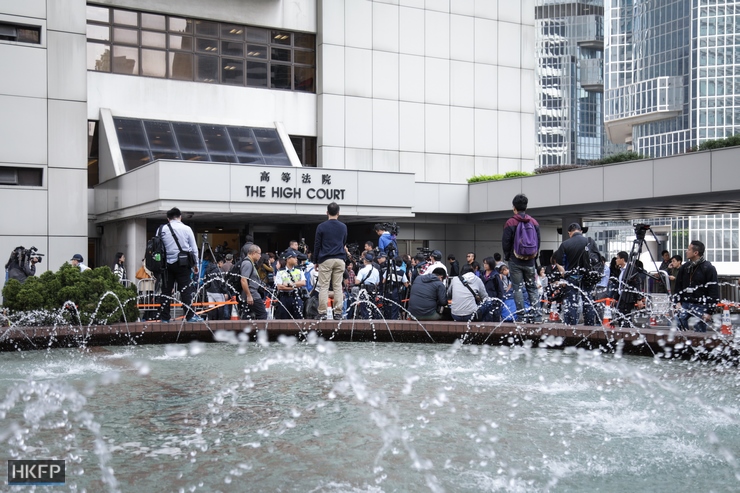
Implications
Back in 1999, the CFA’s acceptance of a reading of Article 158(1) to confer a free-standing, plenary power of interpretation on the NPCSC was heavily criticised as having ceded too much autonomy to Beijing.
Seventeen years on, the implications of such acceptance on Hong Kong’s autonomy have become clear. First, the power of final adjudication in Hong Kong is more restricted than that in most other common law jurisdictions in that it does not include the power of final interpretation of the constitution. Since an interpretation of the Basic Law may effectively dispose of the case, where it does, the power of final adjudication is vested with Beijing rather than the CFA – it will be open to the Hong Kong Government to extinguish the precedential effect of a court ruling by asking the NPCSC to issue a reinterpretation.
A caveat is that according to Article 158(3), an NPCSC interpretation does not affect “judgments previously rendered”. So, for instance, the first NPCSC interpretation, issued to overrule the CFA’s judgment in Ng Ka Ling v Director of Immigration in 1999, did not affect the applicants to the case itself. In other words, unless and until the NPCSC issues an interpretation, Hong Kong courts have full adjudicative power. For how widely the phrase “judgments previously rendered” has been construed, see the 2002 case of Ng Siu Tung v Director of Immigration.
Self-referential game
More importantly, that the NPCSC possesses plenary powers of interpreting the Basic Law downgrades all guarantees in that Law from being legal guarantees to being mere promises the delivery of which is at the grace of the Chinese Communist Party: they could be taken away by the NPCSC in the name of “interpretation”; the Basic Law may not mean what it says.
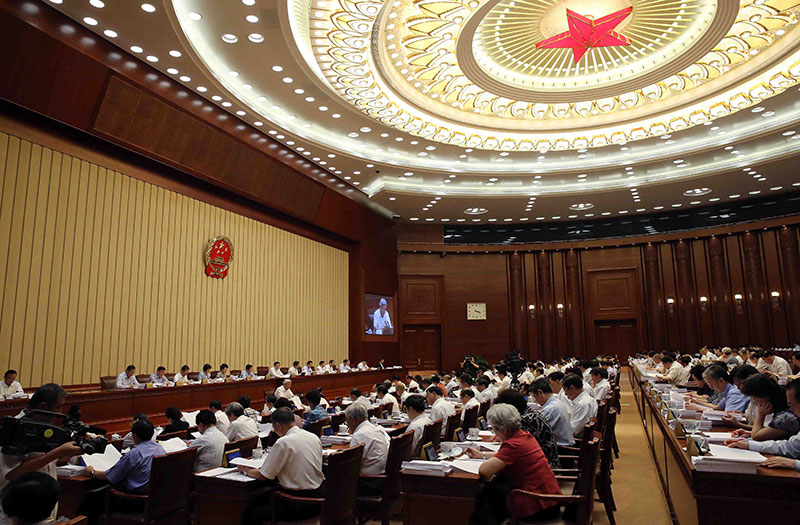
The Basic Law has become a self-referential game. The NPCSC does not have a principled approach to interpreting the law. In line with Leninist legal tradition, the law is viewed by the Chinese Government as a mere tool to facilitate the Party agenda. Interpretations are issued to suit the political exigencies of the day. The NPCSC has used interpretations to add things to the law. To them, the line between an interpretation and amendment of the law is thin.
This is problematic from a common law point of view, according to which the law should serve to guide conduct. If interpretations of law can add new things to the law, the law would be a moving goalpost and would fail to guide. There would be no meaningful rule of law. Subject to my arguments in the final two sections herein, that the NPCSC is the ultimate interpreter of the highest law in Hong Kong means that insofar as the domestic constitutional order is concerned, there are no legal limits on what Beijing can do to Hong Kong.
This does not mean that as a matter of international law, Beijing can do whatever it likes to Hong Kong (it is bound by the Sino-British Joint Declaration to respect Hong Kong’s autonomy until 2047 as well as by human rights treaties it has signed up to). This also does not mean that there are no political constraints on Beijing’s exercise of power (certainly it would not want to trigger another Occupy Movement).
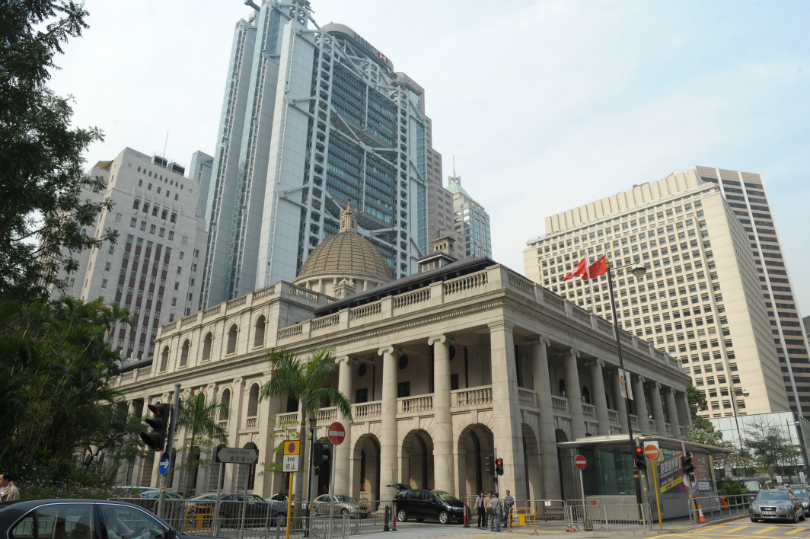
My point is simply that as things stand, subject to what will be said in the final two sections, at the plane of domestic constitutional law, Beijing’s powers over Hong Kong are not subject to any legal supervision. Hong Kong can enjoy separate systems, the rule of law, human rights protection, only to the extent that the Chinese Government exercises restraint not to tarnish them.
Three criteria
In my view, the division of power under Article 158 seeks to protect, on the one hand, judicial autonomy and the integrity of the common law system in Hong Kong and, on the other, China’s ability to control its sovereign prerogatives. (See Chan, cited above, for more detailed discussion of this point.)
The NPCSC would be considered as having exercised restraint in issuing an interpretation of the Basic Law if its issuance respects this ethos by satisfying three criteria: 1) it is issued in relation to Basic Law provisions that concern the Chinese Government’s responsibilities or the relationship between the Chinese Government and Hong Kong; 2) it is issued upon reference by the CFA or, in the absence of judicial reference, on a highly important and pressing matter – without an interpretation on which China’s sovereign prerogatives – namely, foreign affairs, defence, national unity and territorial integrity – would be endangered; and 3) the interpretation is an interpretation rather than an amendment of the law.
Of the four interpretations issued by the NPCSC so far, only the fourth (issued upon reference by the CFA in Democratic Republic of the Congo v FG Hemisphere in 2011) meets all three criteria.
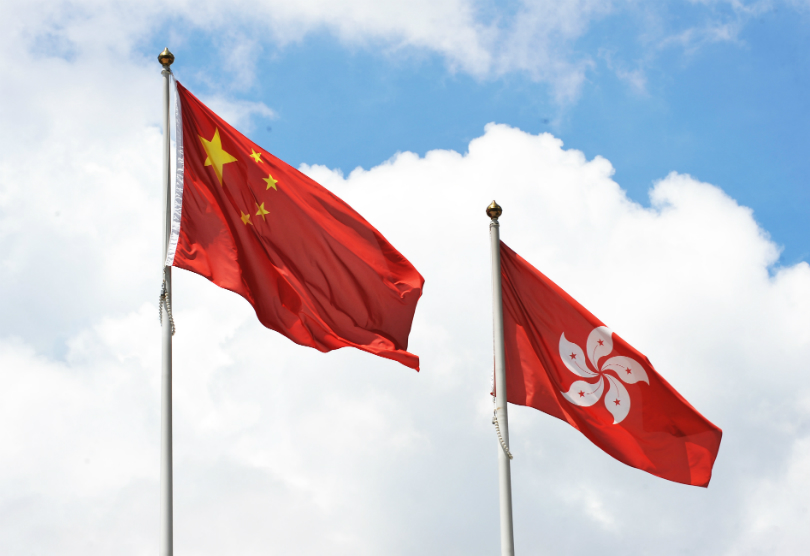
The first interpretation, issued in relation to the right of abode in Hong Kong and upon request by the Chief Executive after the CFA handed down the judgment of Ng Ka Ling, fails the first two criteria and arguably the third as well.
The second interpretation, issued by the NPCSC on its own volition, adding two steps to the procedure for democratic reform, fulfils the first but fails the other two.
The third interpretation, issued upon the request of the Chief Executive on the term of a new Chief Executive elected to replace an outgoing Chief Executive whose term ended prematurely, arguably fulfils the first and third, but fails the second.
The looming interpretation
If the NPCSC were to issue an interpretation to stop Baggio Leung and Yau Wai-Ching from taking office, such an interpretation would likely fail all three criteria. First, the Basic Law provisions which the NPCSC could potentially peg an interpretation on, namely, Article 104 (which simply provides that legislators, judges and key figures in the government must, in accordance with law, swear to uphold the Basic Law and swear allegiance to the HKSAR) and Article 26 (on permanent residents having the right to vote and stand for election in accordance with law) concern matters that fall within Hong Kong’s autonomy.

Second, the interpretation would presumably be issued in the absence of judicial reference, and handed down in circumstances in which China’s sovereign prerogatives are not endangered: although Leung and Yau’s oath-taking behaviour might be offensive, still, their behaviour, or allowing them to become legislators, per se, do not endanger national unity or territorial integrity.
Third, it is difficult to imagine how simple and general provisions like Articles 104 and 26 could be construed as imposing concrete conditions on what constitutes proper oath-taking. It would be hard for the NPCSC to achieve its purpose without adding new content to the provisions.
Fragile foundation of Hong Kong’s constitutional order
The anxiety surrounding the prospect of the NPCSC using its nuclear powers of interpretation to “settle” the pro-independence saga reveals the fragile foundation of Hong Kong’s constitutional order: the highest decision-maker is not subject to legal controls. This is not such a big issue if political sources of control are effective. But the main source of political control available in democracies, i.e. elections, is not available vis-à-vis Chinese organs (compared to parliamentary supremacy in the United Kingdom).
While social pressure would remain a primary form of control, for autonomy in Hong Kong to be truly sustainable, it is important to explore the development of legal controls over the NPCSC’s powers of interpretation. Soft legal controls include: courts developing common law rights (the final interpretation of which are vested with courts rather than the NPCSC), rigorously applying common law methods of interpretation (e.g. resolving any doubt over statutory interpretation in favour of fundamental rights), and limiting the effect of an NPCSC interpretation (see e.g. Director of Immigration v Master Chong Fung Yuen in 2001). These are soft controls because the result that they yield could be overturned by legislation or by an NPCSC interpretation.
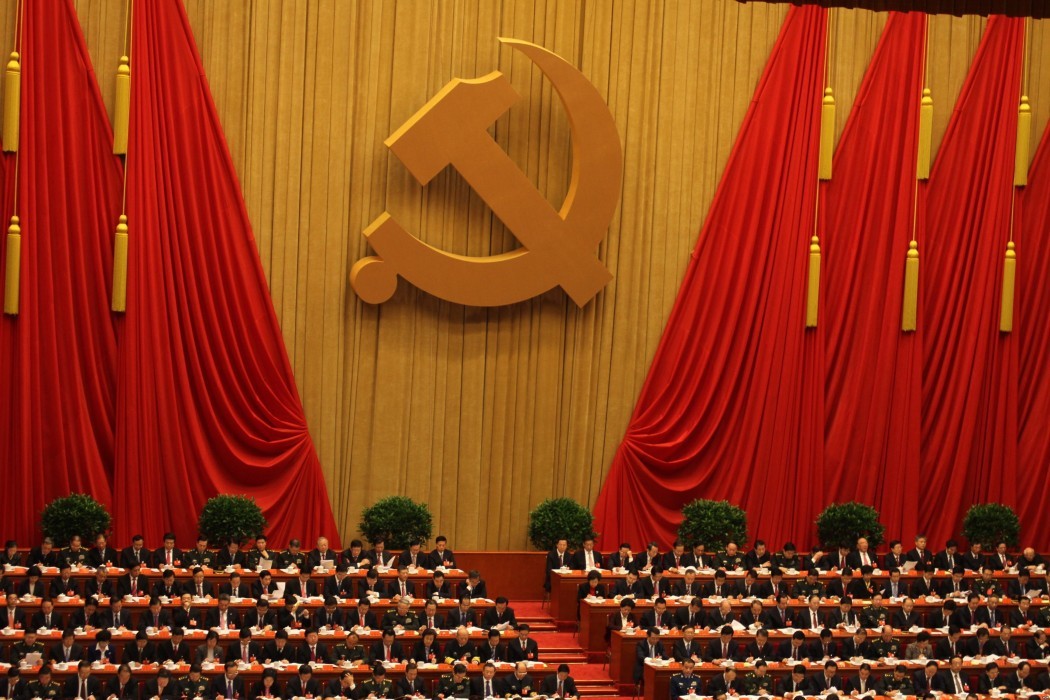
The CFA has attempted to develop hard legal controls as well. In Ng Ka Ling, the CFA boldly pronounced that it can strike down acts by the National People’s Congress (NPC) or its Standing Committee that violate the Basic Law. It did not retreat from this position in its subsequent “clarification”, issued upon request by the Hong Kong Government.
Interpretation as a backdoor
The question of whether Hong Kong courts have the jurisdiction to challenge an NPC or NPCSC act has not been discussed at length again in courts since then. But in my view – and I am aware that this is controversial – the possibility of courts claiming that jurisdiction and actually exercising it should not be precluded. Going forward, a possible hard form of legal control on the NPCSC’s power could be for Hong Kong courts to reassert that jurisdiction, say, by not enforcing an NPCSC interpretation that clearly, unarguably, constitutes an amendment of the Basic Law.
Article 159 of the Basic Law stipulates an onerous procedure for amending the Basic Law. The NPCSC should not be allowed to bypass that procedure through the backdoor of interpretation. Yes, the CFA in Lau Kong Yung did hold that Hong Kong courts are bound by an interpretation issued by the NPCSC, but surely, before giving effect to an interpretation issued by the NPCSC, the court first has to decide whether the NPCSC’s text in truth amounts to an “interpretation” of the Basic Law. There is space for future courts to reassert the jurisdiction to defend Hong Kong’s constitution against Chinese acts.
One might disagree with the form of legal control that is proposed here, but my point really is that for autonomy in Hong Kong to be secure, we cannot just rely on political controls on the Chinese Government – not when it remains a dictatorship. Legal limits have to be developed. This is an issue that has to be explored if an opportunity for constitution rebuilding arises in the run-up to 2047 or otherwise. Before that opportunity comes, perhaps courts in Hong Kong are in a good position to develop those limits. They control what the law is in Hong Kong (think HLA Hart’s rule of recognition; Hart, The Concept of Law (1961)) and are, compared to the legislature and executive, less susceptible to Chinese interference (see Basic Law Article 89).
Cora Chan is an Associate Professor of Law at the University of Hong Kong. She thanks Johannes Chan, PY Lo, Eva Pils, Benny Tai, Stephen Thomson and Po Jen Yap for comments or discussions on a number of points, and emphasises that any errors in arguments are her own.
